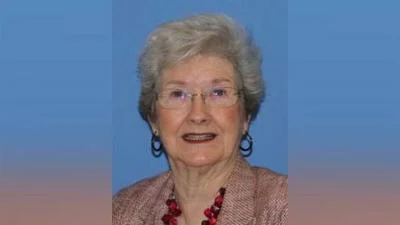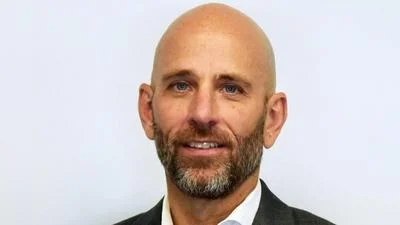City of Geneva City Council Met Jan. 19.
Here is the minutes provided by the council:
Agenda Item 9. Other Items and Correspondence
a) Discussion on Fiscal Year 2021-22 Draft Budget, if needed
Page numbers refer to the Jan. 11 Special Committee of the Whole agenda packet.
Q: The 2018 to 2020 full-time employee census has been stable at 151. What is the 2022 and 2023 full-time employee count?
A: No new full-time positions are proposed for FY 2022. As such, the number of full-time positions for FY 2022 remains at 151. It is unknown at this time whether or not any new full-time positions will be recommended for FY 2023.
Q: When is the additional police officer expected to be hired?
A: As discussed during the Jan. 11 Special Committee of the Whole meeting, the hiring of the additional police officer (authorized in FY 2021) is likely to be delayed until later in the fiscal year based upon several variables. The City’s Board of Fire and Police Commission is currently in the process of creating a new eligibility list with interviews scheduled for February. The list will likely be certified later that month. In addition, there are at least two retirements that are anticipated (one in February and one in May) – creating a total of three known vacancies. Lastly, if the preferred candidate is not certified, hiring is dependent upon when the academy class begins and space availability. As with any vacancy, many factors are reviewed before filling the position, including the fiscal impact.
Q: What is the number of days of operating expenses in the proposed budget?
A: It is estimated that all fund balances in the three major funds will meet or exceed the financial policy of 25% (or 90 days). Based upon the FY 2020 audit, the General Fund fund balance was 43%. The estimate for FY 2021 (ending April 30, 2021) and FY 2022 (ending April 30, 2022) is estimated to be about the same. In FY 2023, current estimates are a decrease of about 10%, but still above the goal of 25%.
Q: Are there any consulting agreements in the budget that exceed $20,000? This would include any proposed study that is spread over multiple funds.
A: Various consulting agreements are contemplated for the FY 2022 budget that would exceed $20,000 mostly relating to engineering. Any contract exceeding $20,000 would require additional authorization by the City Council at the time of proposed execution.
Q: Sales tax revenue is projected to be close to pre-pandemic levels. $4.9 million in FY 2022 compared to $5.1 million in FY 2021 budget. Is this assumption reasonable, and conservative, given the pandemic is ongoing and all businesses are not back to normal operating conditions? Is there a plan to address budget shortfalls if sales tax revenue continues to lag prior year levels?
A: When estimating revenues, staff reviews historical trends and consults with the Illinois Municipal League (and typically further reduces the estimates provided by the IML). As with any budget – expenditures are contingent upon revenue. Therefore, if revenues are lower than estimated then expenditures will be reduced. As discussed at the Jan. 11 Special Committee of the Whole meeting, a change in the tax law effective Jan. 1, 2021 is expected to produce a decrease in local use tax but an increase in sales tax.
Q: Is there a difference in assumptions of parking violations?
Page 43 of 160 (Jan. 11 packet) shows the following for parking violation revenue:
General Fund acct 451
FY 2020 actual $33,500
FY 2021 projected $5,000
FY 2022 budget $8,700
FY2023 budget $26,000
Page 121 of 160
Commuter Parking Fund acct 451
FY 2020 actual $40,200
FY 2021 projected $0
FY 2022 budget $40,000
FY 2023 budget $40,000
A: Assumptions were changed based upon the City Council’s action during the past year to suspend the collection of revenue from the commuter parking lots (permit and daily), and loosening restrictions overall for parking in the downtown area. In addition, the projected revenues for FY 2021 are significantly less than FY 2020 actual because staff neglected to enter an estimate into that line item. In FY 2022, an assumption was made that parking restrictions and associated restrictions will increase in the fall.
Q: Page 44 of 160
General Fund acct 559 Other Professional Services
What is driving the year to year changes?
2019 $45,000
2020 $48,000
2021 $61,500
2022 $69,400
2023 $81,400
A: The majority of the change is the reduction due to a vacancy in the Geneva Emergency Management Agency Director. This position is a volunteer position that receives a stipend but has been vacant for several years. It is anticipated the position will be filled in FY 2023. Additionally, there has been a decrease in court reporting and meeting minutes in FY 2021 attributable to the Community Development Department in FY 2021 due to the pandemic and fewer meetings.
Q: Page 49: Department 10 Legislative - What is the $10,000 in FY 2022 in account 599?
A: This is funding for the potential of partnering with the Cities of Batavia and St. Charles to host a GRCorps volunteer to create a TriCity Sustainability Plan in support of the City Council’s prioritization of the Strategic Plan Environmental Stewardship Objective II – Take actions to promote long-term sustainability and reduce the City’s carbon footprint.
Q: Page 58: Department 70 Police Account 503 - Overtime was halved during the current year. The budget for 2022 assumes that overtime goes back to historic levels. Why? Is a portion of this related to festivals?
A: Overtime is contingent upon a number of factors (including festivals, vacancies, manpower). The budget for FY 2022 is based upon historic data. The FY 2021 current projection is based upon information known as of Dec. 31, 2020. The payment of overtime is dictated by law and by the collective bargaining agreement. Ideally, the budgeted number is the worst-case scenario for overtime expenditures.
Q: Pages 47/48 Personnel Services Departments 30, 40, 50, 60, 70, 80, and 90 all show significant decreases in personnel costs this year, reversing next year. What caused this aberration?
A: Personnel Services includes wages, group insurance, payroll taxes, and pension expenses.
Department 30 (City Administrator’s Office): The City Administrator Office’s intern left the City’s employment in February 2020. This position was not filled during the pandemic. The FY 2022 contemplates the filling of this position sometime during FY 2022.
Department 40: The HR generalist left the City’s employment in May 2020. This position was not filled until October 2020 thus resulting in savings for FY 2021. The Accounting Supervisor left the City’s employment in July 2020. This position was not filled until October 2020 thus resulting in savings for FY 2021.
Department 50: The Community Development intern position is budgeted as personnel services but depending upon the contract with Northern Illinois University, the employee may be paid from personnel services or other contractual services.
Department 60: The Economic Development Department administrative assistant and intern did not work (or receive pay) during the first few months of the pandemic. Following a return to work, the administrative assistant opted to leave the City’s employment. Currently, that position is vacant. The FY 2022 budget is based on the Economic Development Department being fully staffed.
Department 70: The FY 2021 contemplated the hiring of an additional police officer, which has not yet occurred. In addition, as previously stated, overtime is estimated to be less than anticipated when the FY 2021 budget was approved.
Department 80: Negotiations with the International Association of Firefighters union have been ongoing since before the collective bargaining agreement expired on April 30, 2020. The budget accounts for any retro payment and increase in salary as a result of the negotiations.
Department 90: There were a couple of vacancies that occurred during the current fiscal year that are still in the process of being filled. In addition, if there are vacancies at the time of budgeting, health benefits are budgeted based upon the highest cost plan without knowing what plan a new employee may select.
Q: Page 58: Account 597 Tri-Com - Is this expense expected to remain flat for three years? ($236,225)
A: This expense is based upon the intergovernmental agreement with Tri-Com Central Dispatch. The Tri-Com Board historically uses fund balances to pass through a flat or small increase in total to the member communities. The contributions are based upon the number of calls. The allocation can change based upon the number of calls for the City compared to the total.
Q: Page 59: Community Service - Why does the regular wages amount drop each year from $56,000 in 2021 to $36,000 in 2023?
A: This is due to a reallocation of wages between General Fund, Special Service Area No. 1, and Commuter Parking based upon job function. For FY 2021 and FY 2022, it is estimated that the community service officer will spend more of their time doing General Fund-related duties. In FY 2023, it is presumed the parking enforcement will resume in the downtown, which then attributes wages to SSA No. 1 and Commuter Parking Funds.
Q: Page 61: Account 501 - Why is the wages-regular total increasing 11% in FY 2022?
A: The current collective bargaining agreement with the International Association of Firefighters expired on April 30, 2020. The budget is an estimate based upon the current employee census and any negotiated increase, retro pay, and movement through the wage scale.
Q: Page 61: Account 514 Overnight Duty
Totals are:
FY 2020 $300,000
FY 2021 (Projected) $260,000
FY 2022 $375,000
What is driving these variances?
A: Overnight duty is wages paid to paid-on-call firefighters. This number varies upon the number of fire calls, shift filling, etc.
Q: Page 72: Tourism - What is the $40,000 of professional services in 2023?
A: These are two projects, completion of market study and design services for a downtown pavilion, that were budgeted previously, but have been delayed due to various reasons.
Q: Page 73: Restricted Police Fines - Might this schedule be changing pending the Jan. 19 City Council agenda item?
A: No, the expenditure requested on the Jan. 19, 2021 Committee of the Whole Agenda will be paid by fund balance. This does not change the budget for FY 2022.
Q: Page 77/78: Special Service Area No. 1 - What is the $20,000 capital outlay? Account 820
A: Page 131 identifies specific capital projects that are contemplated as part of the FY 2022 budget. This expenditure is for engineering related to repairs for the Rainman Statute that were deferred from FY 2022.
Q: Page 99: Electric fund - Account 503 Overtime - Why are we expecting overtime to triple from $52,585 to $160,200?
A: Overtime is budgeted in one line item but actual expenditures are expensed to the appropriate line item when the expenditure occurs. This is for ease in administration since it is currently unknown under what circumstances overtime may occur. Also, overtime is governed by federal law and the collective bargaining agreement. Ideally, the budgeted number is a worst-case scenario of overtime expenditures.
Q: Account 562: Telephone - What is driving the decrease in this line item?
A: Per the City’s agreement with ComEd, there is a dedicated data line between Public Works and ComEd in Lombard. The electric operations manager worked with ComEd for two years to migrate the data line to fiber optic cable, which eliminated a monthly cost of approximately $6,200.
Q: Page 105: Account 531
What is driving the fluctuation in this expense?
FY 2020 $230,000
FY 2021 (projected) $181,000
FY 2022 $288,000
A: FY 2021 number cited is a projected number, not the budget. There are still four months left in the current budget year. The budget is based on historical expenditures. Many maintenance items were deferred in FY 2021.
Agenda Item 10. Municipal Bills for Payment
1) ComEd, $7,538.72
Q: What is this expense?
A: In 2008, the Geneva Community Unit School District 304 added Fabyan Elementary School, and the City extended its fiber system, attaching to several ComEd poles to serve them. We received approval from ComEd to use their poles, however, they never added the additional poles to our annual rental fee. ComEd performed an audit last year and caught the mistake. They are allowed to collect five years back payment.
https://www.geneva.il.us/AgendaCenter/ViewFile/Minutes/_01192021-1703






 Alerts Sign-up
Alerts Sign-up